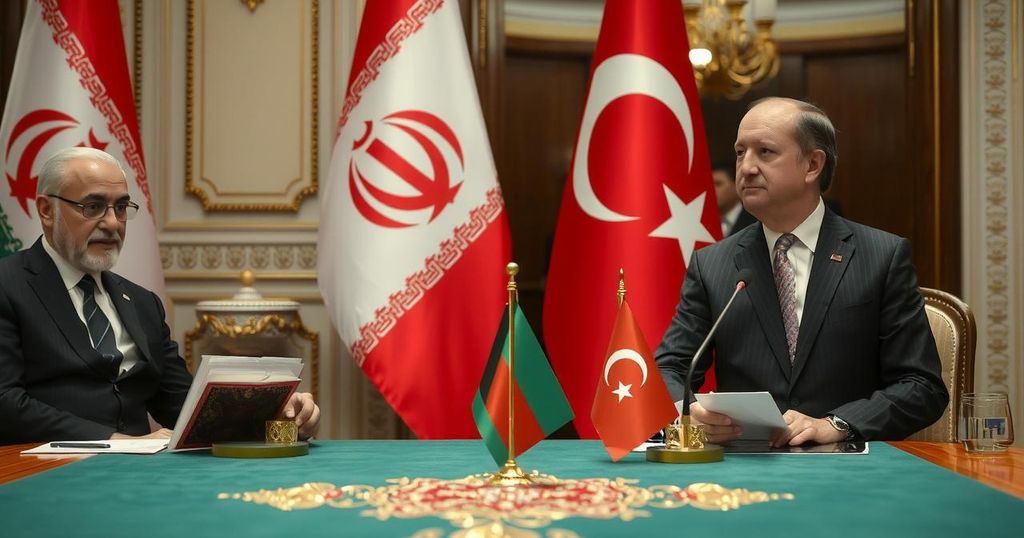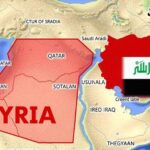Conflicts
Politics
AL, AN, ANIS, ASIA, BASHA, BASHAR, CIVILIAN CASUALTIES, CONFLICT, EGYPTIAN COUNCIL FOR FOREIGN AFFAIRS, ERDOGAN, EUROPE/ASIA, GAZA, GAZA STRIP, HAMAS, HEZBOLLAH, IRAN, MIDDLE, MIDDLE EAST, MIDDLE EAST CONFLICT, NORTH AMERICA, RUSSIA, THENATIONALNEWS, UNITED STATES
Clara Montgomery
Egypt Hosts Iran and Turkey Presidents at Developing-8 Summit Amid Geopolitical Shifts
Egypt hosted a summit with the presidents of Turkey and Iran as part of the Developing-8 (D-8) initiative, focusing on the shifting influence of non-Arab countries in Middle Eastern affairs. Key discussions included regional security, the Gaza conflict, and the Houthi attacks on commercial shipping, highlighting the complexities of contemporary geopolitical interactions.
On Thursday, Egypt convened the presidents of Turkey and Iran at a summit involving eight Muslim-majority nations known as the Developing-8 (D-8). The gathering in the New Administrative Capital near Cairo unfolds amidst significant geopolitical shifts in the Middle East, where Turkey and Iran are determining the new dynamics in a region historically dominated by Arab nations. With the recent decline in the power of Iranian-backed entities like Hamas and Hezbollah, observers like Anis Salem, a retired Egyptian diplomat, note that the relevance of Arab leadership is diminishing, with Turkey, Iran, and Israel emerging as influential players.
The summit marks the first meeting between Presidents Recep Tayyip Erdogan and Masoud Pezeshkian following the recent overthrow of Syrian President Bashar Al Assad, indicating a substantial alteration in regional alliances. Pezeshkian’s visit to Egypt, the first by an Iranian president since 2013, signals a potential thaw in relations between the two countries. Egyptian President Abdel Fattah El Sisi is expected to address the escalating issue of Houthi attacks on Red Sea shipping, which have substantially impacted Egypt’s economy.
The Houthis, supported by Iran, have taken aggressive measures that have severely affected Egypt’s Suez Canal revenue. Discussions at the summit are anticipated to encompass not only the ongoing conflict in Gaza and the crisis involving Hezbollah but also broader themes such as ensuring stability and security within the region.
Historically, Iran and Egypt have endured a contentious relationship since the 1979 Islamic Revolution, yet recent dialogues have aimed at normalizing these ties, albeit with slow progress toward full diplomatic representation. The D-8 summit will also address critical issues such as Houthi militancy, reflecting a collective desire among member states to cooperate in economic and security fields. On parallel issues like the conflict in Libya and Sudan, both Turkey and Egypt continue to navigate complex alliances, suggesting a cautious yet deliberate collaboration moving forward. The composition of the D-8, which includes Nigeria, Pakistan, and Indonesia, illustrates a diverse coalition, striving for unity among nations with shared goals in an increasingly polarized world.
The summit being held in Egypt reflects the changing dynamics within the Middle East, characterized by the shifting roles of non-Arab nations like Turkey and Iran. After protracted conflicts, Iranian influence in regions like Gaza and Lebanon has waned, while Turkey plays a critical role in opposing regimes traditionally supported by Iran. The D-8 summit thus becomes a platform not only for economic discussion but also for regional collaborative strategies in the face of these changes. The historical context of Egyptian-Iranian relations, marred by decades of tension and recent efforts for dialogue, sets the stage for potential collaborations within the D-8 framework.
In conclusion, the summit in Egypt highlights significant geopolitical shifts within the Middle East as Turkey and Iran assume increasingly pivotal roles. With ongoing discussions on pressing regional issues such as the conflicts in Gaza and the Red Sea shipping attacks, the D-8 platform serves as a vital forum for these nations to explore cooperation. The evolving relationship between Egypt and Iran represents a cautious approach to enhancing diplomatic ties, amidst both regional and international complexities.
Original Source: www.thenationalnews.com








Post Comment